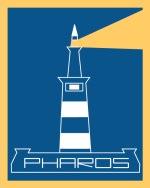|
Adopted at the
founding assembly on 20th of March 2005 in Stuttgart.
Preamble
The work of Pharos is
based on the conviction that long-term education projects contribute
to foster democratic, tolerant and peaceful attitudes. Thereby the
“Universal Declaration of Human Rights” adopted by the General
Assembly of the United Nations provides the basis for our actions.
In this spirit Pharos sets out the following charter:
§ 1 Name, Seat, Business year
1. The association has the name "Pharos
e.V.".
2. It has its seat in Stuttgart and shall be registered with the
authorities.
3. The business year is the calendar year.
§ 2 Objectives of the Association
1.
First objective of the
association is promotion of education. This is realized mainly by
- developing,
conducting and fostering of education, democratization and cultural
projects worldwide or by acting as responsible body for such projects.
Mainly, these are
- projects
in the field of civic, democracy and peace education (development and
dissemination of teaching material, training of disseminators, youth
exchange projects, conferences etc.).
2. Second
objective of the association are charitable purposes. These are
realized mainly by
- humanitarian
aid
- supporting
needy people with money (according to § 53 Abgabenordnung of German
law)
- conducting
projects in the field of struggle against poverty (i.e. aid
consignments).
§ 3 Preferential Treatment concerning Tax
1. The association only and directly has
non-profit and charitable purposes according to the paragraph „Steuerbegünstigte
Zwecke“ of the Abgabenordnung in German law. The association acts
altruistic; it doesn’t have mainly self-economic purposes.
2. Money of the association must be spent according to the objectives
of this Charter only. Members must not receive money of the
association only for being members. If they leave the association they
have no claims whatever concerning the association’s property. No
person is allowed to get money for something which is not according to
the objectives of the association, or receive more money than usual
for any kind of work or services.
§
4 Membership
1. All natural and legal persons
supporting the association’s objectives can become members.
2. Membership is received by admission by the Board of Directors.
3. Egression of a member requires a written declaration to the Board
of Directors at least three month before the end of the business year.
4. A member can be ejected by decision of the Board of Directors, if
the member counteracts the association’s objectives. The member can
call for a Member’s Assembly against the decision. The Assembly makes
the final decision. The member must be invited and heard at the
Assembly.
5. Members have to pay an annual fee of ten Euro.
§ 5 Bodies of the Association
Bodies of the
association are:
1. Member’s
Assembly
2. Board
of Directors
§ 6
Member’s Assembly
1. Highest
body is the Member’s Assembly which normally is headed by the Head of
the Board of Directors.
2.
The Member’s Assembly decides about the
guidelines of the association’s work and about important questions.
3. The
Head of the Board of Directors invites all members to the Assembly in
written form at least four weeks ahead outlining the agenda of the
meeting. The Assembly holds a meeting as often as necessary, normally
once a year.
4. An
extraordinary Member’s Assembly takes place if at least 25 % of
members demand it and give reasons for it. It takes place five weeks
at the latest after being demanded in written form.
5. There
has to be a report about the decisions and, if necessary for
understanding, about the discussions leading to the decisions. The
report is signed by the head of the Assembly and the reporter.
§
7 Board of Directors
1. The
Board of Directors consists of the Head of Board, the Deputy of the
Head of Board and the Treasurer. They form the Board of Directors
according to § 26 BGB of German law.
2. For
legally binding representation signing by two members of the Board of
Directors is sufficient.
3. The
Board of Directors is elected by the Member’s Assembly for two years.
He stays in office until a new Board of Directors is elected.
4. The
Board of Directors usually holds meetings once a month.
5. Decisions
are recorded in writing and signed by the Head of Board.
§ 8 Changes of the Charter and Dissolution
1. The
Member’s Assembly decides about changes of the Charter, changes
concerning the objectives of the association and about dissolution.
Proposals concerning these issues are to be made available to the
members one month ahead of the Member’s Assembly at the latest.
2. Changes
or modifications of the Charter which are made obligatory by the
registering authority or financial administration are carried through
by the Board of Directors and don’t need to be decided by the Member’s
Assembly. Members have to be informed about these changes in the
course of the next invitation to the Member’s Assembly.
3. If
the association is dissoluted or the capacity to act is withdrawn or
if the preferential treatment concerning tax ceases, the complete
property is used for objectives enjoying preferential treatment
concerning tax. Decisions concerning the future usage of the property
must not be applied before the financial administration has agreed.
|

